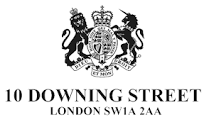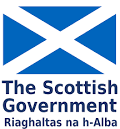PRESS RELEASE : Crackdown on intimate image abuse as government strengthens online safety laws [September 2024]
The press release issued by the Department for Science, Innovation and Technology on 13 September 2024.
Sharing intimate images without consent will be made a ‘priority offence’ under the Online Safety Act and social media firms will have to proactively remove and stop this material appearing on their platforms.
- Sharing intimate images without consent will be made a ‘priority offence’ – the most serious class of online crime under the Online Safety Act.
- Social media firms will have to proactively remove and stop this material appearing on their platforms, or face fines.
- Technology Secretary says rise in abuse “intolerable” and action will help stop generations being “desensitised to their devastating effects”.
New changes to the law will force tech firms to clamp down on the sharing of non-consensual intimate images on their platforms as part of a drive to tackle online sexual offending.
The offence of sharing intimate images without consent will be classified as the most serious type of online offences under the Online Safety Act, meaning platforms will now have to take steps to proactively remove this material, as well as prevent it from appearing in the first place. If they fail to do so under this new law they could face fines.
The strengthening of the law forms part of the government’s commitment to ensure new and existing technologies are safely developed and help keep people safer online, particularly women and girls with more than one in three women in the UK having experienced abuse online.
The changes will help tackle sexual offending and the normalisation of misogynistic material online as part of the government’s mission to halve violence against women and girls over the next decade.
The changes will help tackle sexual offending and the normalisation of misogynistic material online as part of the government’s mission to halve violence against women and girls over the next decade.
Technology Secretary Peter Kyle said:
The rise in intimate image abuse online is utterly intolerable. As well as being devastating for victims these crimes have also contributed to the creation of a misogynistic culture on social media that can spread into potentially dangerous relationships offline. We must tackle these crimes from every angle, including their origins online, ensuring tech companies step up and play their part.
That is why we will classify these vile and cowardly offences as the most severe types of crime under the Online Safety Act. Social media firms will face extra legal obligations – backed up by big fines – to uproot this content from their sites, helping to stop their normalisation and preventing generations becoming desensitised to their damaging effects.
Safeguarding Minister Jess Phillips said:
Intimate image abuse is an appalling, invasive crime and technology companies must do much more to tackle it. We will use every tool available to achieve our unprecedented mission of halving violence against women and girls within a decade and this is an important step forward.
The scale of violence against women and girls in all its forms is a national emergency, whether in person or online. We must overhaul every aspect of society’s response to stop this abuse from happening in the first place. Platforms must take responsibility for the content they host and we must ensure victims receive the support they deserve.
Victims Minister Alex Davies-Jones said:
Intimate image abuse is a degrading and deeply misogynistic crime and we must pull all levers available to us to stamp it out.
Today’s announcement builds on the progress which has already been made, making it a specific offence to share intimate images online without consent. It also sends a clear message to those companies who turn a blind eye to such heinous content on their platforms – remove it without delay or face the full force of the law.
The Online Safety Act will require social media firms and search services to protect their users from illegal material on their sites, with protections due to come into force from Spring next year. The most serious forms of illegal content are classed as ‘priority offences’ meaning regulated online platforms will have additional duties to proactively remove and stop from appearing on their sites.
Today’s move will mean intimate image offences are treated as priority offences under the Act, putting them on the same footing as public order offences and the sale of weapons and drugs online.
If firms fail to comply with their duties the regulator Ofcom will have robust enforcement powers, including imposing fines that could reach up to 10% of qualifying worldwide revenue.
Georgia Harrison, journalist and advocate for online safety and the prevention of violence against women and girls, said:
I am proud to be part of the announcement that intimate image abuse will now be recognised as a priority offence.
As a victim of voyeurism and image-based sexual abuse, what shocked me the most is that certain platforms were not only spreading and advertising this harmful content but also legally monetising it.
This new legislation could have shielded me from such exploitation and, more importantly, validated that my voice matters. I earnestly hope tech companies will take this seriously and implement meaningful changes to their algorithms and corporate policies to prevent this type of abuse.
It is inspiring to see the government taking concrete steps to address the rise in violence against women and girls. Change is imperative, and this is a promising start and I thank them for supporting this crucial cause.



